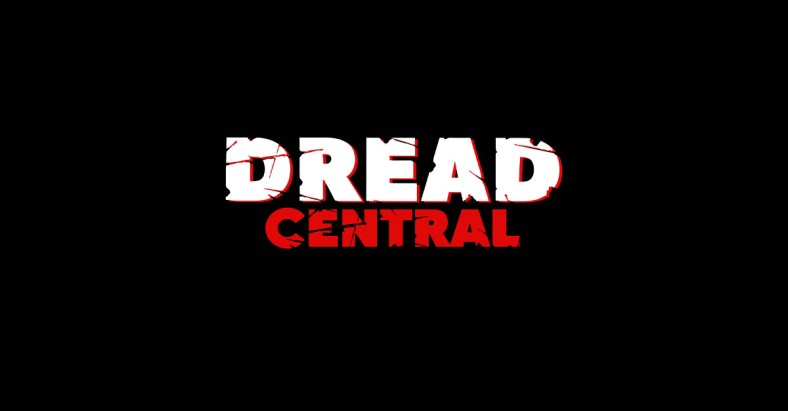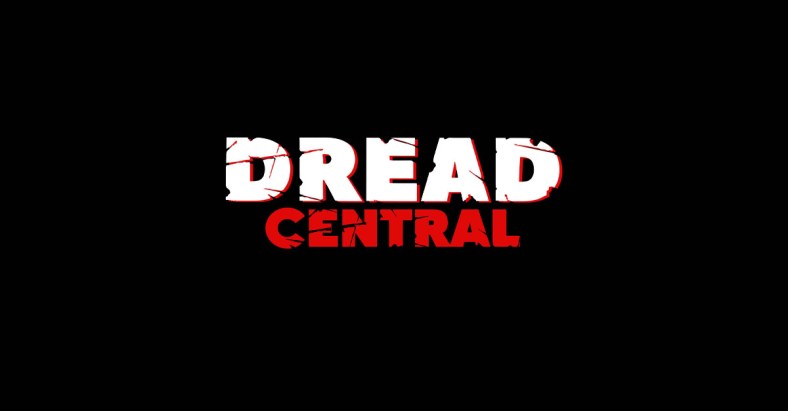Exclusive: Writer/Director Damien Power on Killing Ground

Damien Power has presented his feature directorial debut, Killing Ground, at festivals all over the world, and finally it’s coming to theaters and VOD in the U.S. on July 21st.
The film follows the fates of two families who go camping in the Australian outback… and not all of them return. To us, it felt reminiscent of some classic Australian horror films (in a good way!), but Power said he didn’t set out to tread old ground.
He explains, “I wasn’t thinking about other films, other Australian horror, when I was making it, in that respect. When I made the decision that tonally I wanted it to be as realistic as possible, I think that I knew it was going to have a certain impact in terms of other kinds of Australian horror and films. I was conscious it fits into the tradition of Australian cinema, where white Australians star, they are uneasy in the outback or the bush, from Picnic at Hanging Rock I guess through to Wolf Creek, so that’s kinda how I saw it fitting in with Australian cinema.”
Dread Central: We heard this story grew from something you actually saw… what was it?
Damien Power: The very germ of the idea was [from] the middle of a pod tent out in the bush in the middle of nowhere, and it just came into my head, I don’t know where it came from, but it was very specific. It was a large boxy sign, family, campers, tent, and it got me thinking: well where are the campers, what happened to them? That suggested the antagonist and then I thought: Who finds the tent? Then that suggested the protagonist. So that was the very germ of the idea. It certainly taps into, you know, experiences camping that I’ve had where you’re out in the middle of nowhere and you suddenly start to feel very alone and very isolated. Nothing like the actual story, though. And the film, I guess for me personally, there are a lot of my fears in there, and my fears for my kids. Would I able to protect my family if we’re in trouble.

Photo Credit: Sarah Golonka
DC: Yeah, you have a young child in peril in the movie. Some filmmakers wouldn’t go there. And what was it like working with toddlers in less-than-comfortable surroundings on location?
DP: I was never doing things just to shock the audience. For me, everything that happens to the campers and that family, comes from a place motivated by character. They are unfortunately in the wrong place at the wrong time, and when I was writing it actually, it’s not based on any particular true crime, but I did do a lot of reading about crimes involving more than one perpetrator. From that, I really feel like often these crimes happen because of just the bad circumstances of those two characters being together at that time, seizing an opportunity, and so that’s the story I was telling here. So, everything that sort of unfolds comes from the point of view of what would these characters do in the circumstances. And one of the things I was trying to do in the film as a whole was take a genre story and try and make it as real as possible. What would you actually do in that circumstance, what would I do in that situation. So, getting back to working with the kid: We had twins, Liam and Riley, on set and I know they always say you shouldn’t work with kids and animals. But they were pretty good to work with and provided you are not asking a child or an animal to do something outside its capacity and you’re patient, then you’ll probably be okay. I think the biggest struggle we had was getting them to sleep because the child is either asleep or unconscious for a lot of the film.
DC: Casting villains is always tricky, especially in a movie where you’re striving for realism. How did you find your actors?
DP: When it came to casting the role of German, I wanted to find someone who had the charisma to mentor a younger person to murder. That was the most important thing, and Aaron Pedersen who plays German, has plenty of charisma. I think he’s an Australian treasure, but he usually plays cops. So, when I sent the script to him, I said: He’s never gonna do this. And he said yes straight away. I think part of the reason was because he never gets offered those kinds of roles. And Aaron Glenane, who plays Chook, I met through an audition process. But he and I worked together on a short film of mine called Hitchhiker, which we shot actually only a couple of months before the feature, so yeah, I knew I wanted him in that role, as Chook. But I think they had their own kind of intense bonding experience. Remember Julian Garner who played the dad, they were all staying at the same hotel and he was dropping off call sheets and sort of walked in on the middle of one of their bonding sessions and he told me after it was just a little bit too scary – he had to leave.
DC: Any anecdotes from shooting or being on location that might add to the viewing experience?
DP: We shot in the driest months of Sydney, supposedly, but we got slammed by rain. And anything that takes time away from beyond the shoot is deadly. So, there was a day where we were filming some dialogue inside the family’s tent where we actually had another tent and tarpaulin built over that tent, to keep out the downpour. We were having to film that scene with rain hammering on the tarpaulin. The one good thing about the rain was, we could have stopped an arsonist from lighting the place up. While we were shooting at the location, there was a local arsonist who was trying to burn the place down. The second day I arrived on set, on location, there were spots of bush that had been burnt black by the side of the road. I said to my producer, “What’s going on here?” She said, “Oh, well, that’s the local arsonist. There’s not much we can do about that.” One day when we had shot the climactic scene, we were watch Chook, German and Sam in that clearing, I wanted to go back and get some pickups the next day, and we came back and that whole area was just burnt to the ground. So luckily, they were close ups and you can kinda point the camera anywhere. The production itself has its own survival story, but maybe with a happier ending.
About the Film:
Killing Ground is a tightly-wound thriller reminiscent of the 70’s survival thrillers such as Deliverance and Straw Dogs and more recent chillers The Vanishing and Funny Games. The film is a modern campfire story about fear, violence, heroism, and the limits of courage.
This exceptionally well-crafted film is written and directed by Damien Power, who is making his feature film debut. Considered one of Australian’s rising directors and praised for his “original voice and distinctive storytelling,” Power’s short films have been programmed in noteworthy festivals such as Busan and Venice.
The film tells the story of Ian and Samantha, who arrive at an isolated campsite to find an SUV and a tent – no sign of the occupants. As night falls and the campers fail to return, Ian and Sam grow increasingly uneasy. The discovery of a distressed child wandering in the woods unleashes a terrifying chain of events that will test them to the breaking point.
Ian Meadows, who plays Ian, and Harriet Dyer (Logie Award-nominated actress for Most Outstanding Newcomer and Most Popular New Talent), who plays Sam, deliver powerful performances that have audiences feeling every desperate moment.
Aaron Glenane, most recently seen in the film Truth alongside Cate Blanchett and Robert Redford, plays Chook, whose outward calm hides a frightening cruelty. His mentor in murder, German, is played with cold malice by Aaron Pedersen, an award-winning actor best known for the hit thriller Mystery Road. Together, Chook and German are an unforgettable criminal duo.
Killing Ground has a taut, non-linear structure, which contributes to an atmosphere of timeless menace and dread. Tension builds as the narrative threads wind together, danger escalates, and Sam and Ian’s options narrow drastically. The Australian bush setting plays a significant role in the film, and Killing Ground is part of a long tradition of Australian cinema – from Picnic at Hanging Rock to Wolf Creek – that finding a deep sense of unease in a hostile wilderness.

Categorized:News

